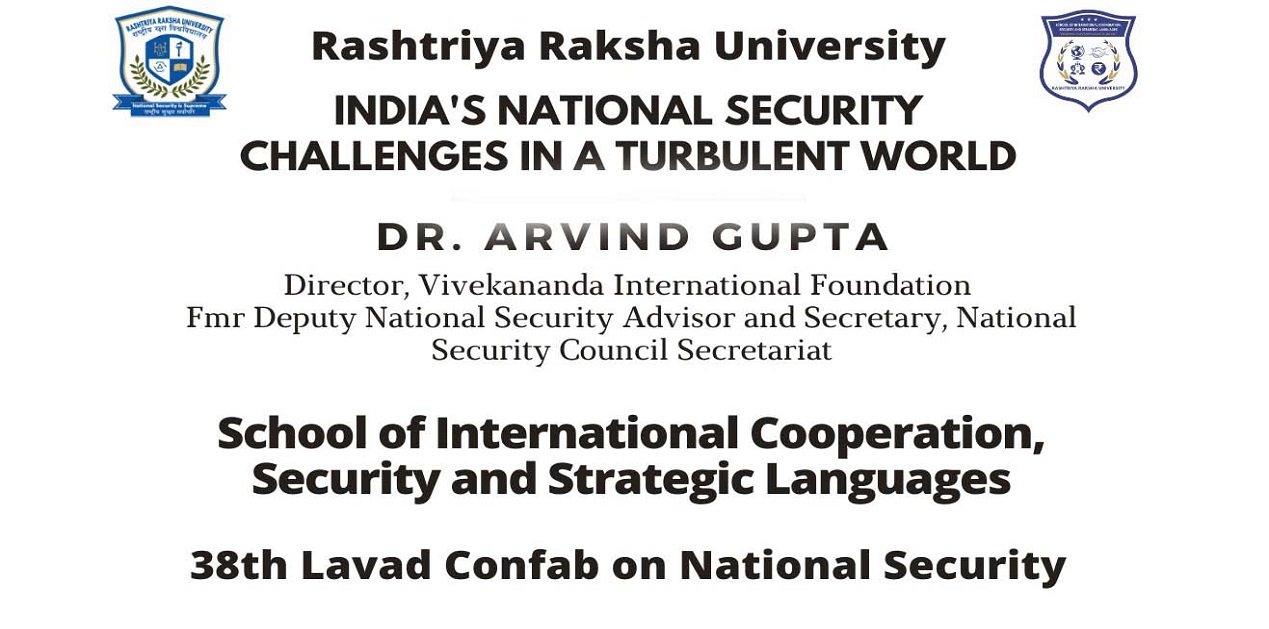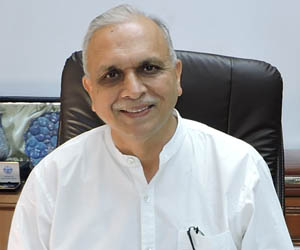External environment has become deeply uncertain. The balance of power is shifting. US centred hegemonic order has come under stress. Multilateralism is dysfunctional. Global south is asserting for its voice to be heard. Alliances and partnerships are changing. The world is seeing fragmentation. Several conflicts and wars are raging simultaneously with no end in sight. These have deep impact on India’s national security.
The scope of India’s national security challenges is widening: Covid 19 disrupted India’s economy, society and exposed over weaknesses. Galwan 2020 underlined the unreliable nature of China and the need for new military doctrine and building infrastructure on the border.
The lessons for India are:-
- There will be contrasting pulls and pressures from other countries. The world is becoming multipolar. Hedging will be necessary in many cases.
- Partnerships and alliances are needed but transitory. Hedging is common in a multipolar world.
- There is urgent need to strengthen self-reliance. India needs to continuously develop its military-industrial, technological, economic strengths.
- Indians living abroad are vulnerable.
- Military and non-military security threats are converging.
How does one survive these challenges?
Kautilya’s Arthasastra provides us with some clues as to how we can survive these challenges in national security. In the Arthasastra the Vijigishu, or the conqueror, has the responsibility to expand the influence of the state, defend it against hostile neighbours, seek friends and constantly ensure the welfare and progress his subjects. The advice pertaining to strengthening the six prakrities or attribute of the states i.e. the King, Amatya, Durg, Kosh, Dand and Janapada. This means that the comprehensive strength of the state should be built.
Kautilya’s advices are the judicious use of the six tools (Shadgunyas) of foreign policy namely, Sandhi (peace), Vigharaha (war), Asana (staying quiet), Yaana (preparing for war), Smsraya (seeking the protection of a stronger king when threatened) and Dvaidibhava (making peace with a neighbouring king to pursue with his help the policy of hostility towards another). Kautilya’s advises the king to identify the enemy and the circle of his friends.The king has to use the four upayas of Saam, Daam, Bhed, Dand properly. The King should enhance to the three kinds of shaktis (power): Mantra Shakti (Intellect), Prabhav Shakti (material) and Utsah Shakti (morale).
Seen in the modern context, Kautilya’s advice amounts to objective identification of national interests in the backdrop of changing global environment, focussing on identifying opportunities and challenges, distinguishing between friends and foes and the need for building ones capability.
In other words, India must be clear about the Rajmandala or the geopolitical environment that it is located in. We also need to be aware that the various states in the Rajmandala have their own strengths and weaknesses, which need to be identified and leveraged. Of course, today’s world is very different from the world in which Kautilya lived. The configuration of states may have changed but the basic character of state behaviours has not seen any change, namely, there are hostile states with which one has to deal with.
Alliances play a major role in dealing with the hostile world. These alliances are however, are dynamic and subject to change. The Mitra of today can turn out to be the Ari of tomorrow and vice-a-versa.
In Kautilya’s view, wars cannot be ruled out but they should be the method of last resort. A King goes to a war after a lot of consideration and evaluation of his own strengths and weaknesses and of his allies. While spineless surrender is not recommended, a pointless war motivated by false hubris and overestimation of one’s strength is also to be avoided. A country should devote attention and resources to fighting a war by remaining prepared for the same.
Kautilya’s teachings can be profitably applied to the present day situation. India needs a comprehensive National Security Strategy which takes in to account the factors like national interests, global and regional environment, the different attributes of states power, war preparedness, strong economy, military, technology, able population, well defended borders, internal cohesion, a satisfied population and a variety of partnerships and alliances and robust diplomacy. There also needs to be a constant review of these factors as the situation changes continuously.
What should India do?
Most specifically, India will have to take several steps to ensure that it is able to survive and thrive in a changing world.
- The balance of power is shifting. The world is becoming multipolar. India should ensure that not only it emerges as an important pole in the multipolar world but also that it has mutually beneficial partnership with other countries.
- Defence preparedness should not be neglected. It requires a self-reliant military industrial complex to the extent possible and mutually beneficial partnership to ensure that India has access the critical technologies, minerals and other supplies.
- Foreign policy is to assist in internal balancing. India should ensure internal stability at all costs. This will require good governance, equality, growing economy, law and order, justice, social harmony, sustainable development, etc.
- India needs to muster, adopt and promote technology. Technology can be a catalyst for growth and governance but also has a destabilising role. This is particularly true of emerging technologies like AI, quantum technologies etc. India should be among the leading nations in the area of space, cyber, AI, agriculture, health and energy technologies.
- Rare earths and strategic materials are emerging as critical components of decarbonised economies. India needs to develop its potential in these areas and also enter into trade and technology partnerships to ensure uninterrupted supplies of these materials.
- Climate change is a top global issue. India needs to manage its energy transition diligently. There is a risk that a rush to decarbonise the economy could lead to unhealthy dependence on imports of clean technologies. India’s R&D spending is very low by international standards. It must be raised to at least 1.5 percent of the GDP.
- Going forward, the youth will be critical for India’s growth and security. India must arrest the ongoing brain drain by creating high quality jobs and involve youth in long-term strategic missions.
- In the area of foreign policy, India should be prepared for the emergence of a multipolar world. India has outlined Vasudhaiva Kutumbkam as a theme of foreign policy. Cooperation and not conflict, diplomacy and not war, sharing of experiences, use of digital technologies, one health, one grid etc are some of the initiatives taken by India. These must be pursued to bring on board the countries of global south. India should plan an active role in regional grouping.
- Great power rivalries are deepening. This will give rise to more conflicts and instability. India must avoid costly entanglements. It must defend its national interest’s vis-à-vis great powers with care. India-US relations have become comprehensive. But we should watch out for how US interests pan out in the various regions of the world. Our relations with China are problematic. With Russia, there is certain dilution in ties but the partnership still remain relevant in the emerging geopolitical order. India cannot afford to put all its eggs in one basket. On many issues, which directly impact India’s interests, we will have to take a stance. On others, we may have to take resort to hedging.
Conclusion
In the situation of current flux and churn in the world, instability is likely to grow. This presents many challenges to India. But, this is also an era of opportunities. India has been able to build its strength and take advantage of the new opportunities. But, we have challenging tasks ahead. We must define our national interests clearly and build strength as rapidly as possible.










Post new comment